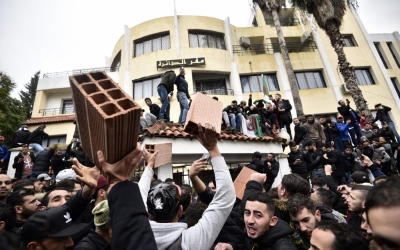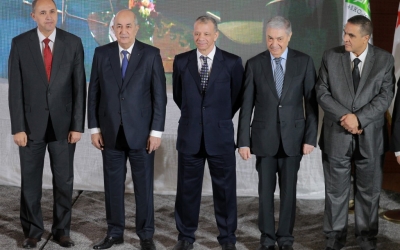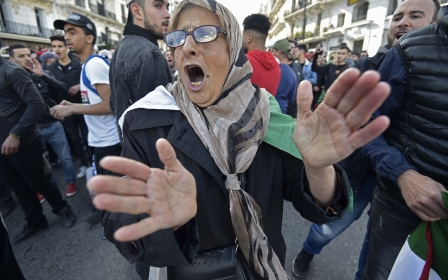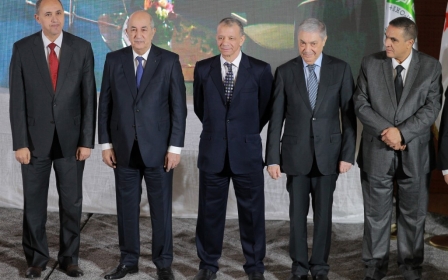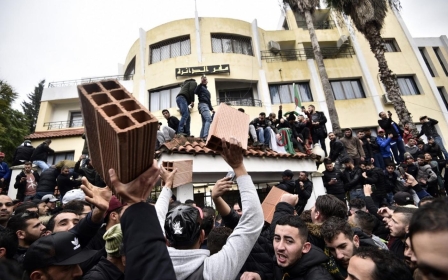Algeria declares Tebboune winner of controversial presidential election
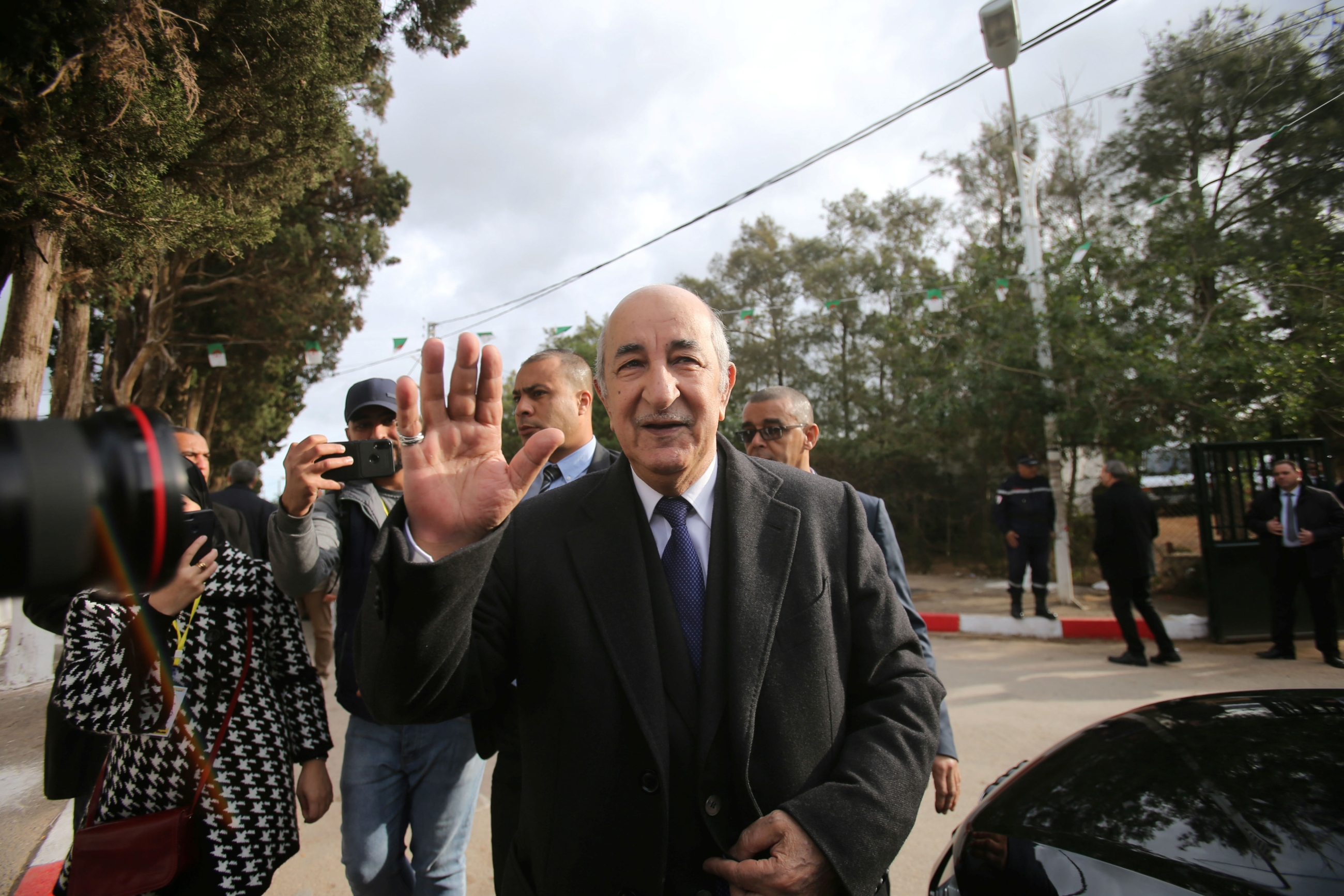
Algeria's electoral body said on Friday that former prime minister Abdelmadjid Tebboune had won Thursday's presidential election with 58 percent of the vote, according to preliminary results.
The election was marred by attacks on polling stations and the lowest turnout in the country's history.
The vote had been championed by the army as a way of restoring stability almost 10 months into a protest movement that in April ousted president Abdelaziz Bouteflika, 82, after two decades in office.
Protesters have slammed the election as a charade to keep the ruling elite in power, with all five of the candidates widely rejected as "children of the regime".
In a televised news conference in Algiers, electoral authority chairman Mohamed Charfi said a record six in 10 Algerians abstained, the highest rate for a multi-party election since independence from France in 1962.
New MEE newsletter: Jerusalem Dispatch
Sign up to get the latest insights and analysis on Israel-Palestine, alongside Turkey Unpacked and other MEE newsletters
However, state media cast the participation as a high enough turnout to vindicate the decision to hold the poll in spite of the boycott.
All five candidates in the running for the presidency had been former associates of Bouteflika.
"There should be no surprise whatsoever in the reaction of the people," said Dalia Ghanem, an Algerian resident scholar at the Carnegie Middle East Center.
"What is surprising is how the leadership is deaf to their demands," she told MEE.
The shortest-serving prime minister in Algerian history, Tebboune, 74, served from May to August 2017, when he was fired by Bouteflika for attacking oligarchs linked to his now-jailed brother, Said Bouteflika.
In his first news conference since the election, Tebboune said he was ready to "extend a hand" to the Hirak protest movement.
"I extend my hand to the Hirak for a dialogue to build a new Algeria," he said during the conference on Friday.
Tebboune is still campaigning against powerful business figures accused of corruption.
'The people want independence'
On Thursday, protesters defied a heavy police presence to hold a mass rally in the heart of Algiers, as well as smaller demonstrations in provincial cities.
Police with water cannon and helicopters tried to disperse protesters tens of thousands of protesters in the capital.
"The people want independence," demonstrators chanted after breaking through a police cordon and filling the streets outside the Central Post Office, their rallying point through more than 40 weeks of protest.
Reporters for the AFP news agency saw a group storming a polling station in the capital, suspending voting there for about half an hour before police pushed them out again.
Late in the afternoon, an reporter saw police using baton charges to disperse remaining protesters.
After dark, witnesses reported ongoing scuffles between police and protesters in the Belouizdad neighbourhood close to the city centre.
In the mountain region of Kabylia, home to much of the country's Berber minority and historically opposed to the central government, protesters ransacked polling stations and clashed with police, residents said.
In the city of Bejaia, two polling stations were attacked. In Tizi Ouzou, security forces fired tear gas to disperse a crowd who had surrounded a government building, triggering a standoff into the night in which several people were wounded.
'Risky move'
Protesters formed the Hirak (movement) in February to demand that Bouteflika resign instead of running for a fifth term.
The movement has been backed by Algerians from all walks of life, including lawyers and judges.
Zine Labidine Ghebouli, an Algeria analyst and contributor at the Washington Institute for Near East Policy, told MEE that the decision to press ahead with elections had been a "risky move".
"The elections... will not solve the legitimacy crisis that Algeria has been living under for decades," he said.
"Hirak will probably continue [with protests] even after the elections and this will weaken any incoming president.
"The ongoing political crisis needs an urgent dialogue between the protesters and the military... and the expected low turnout proves that elections are not the solution, they will only deepen the crisis."
Middle East Eye delivers independent and unrivalled coverage and analysis of the Middle East, North Africa and beyond. To learn more about republishing this content and the associated fees, please fill out this form. More about MEE can be found here.


